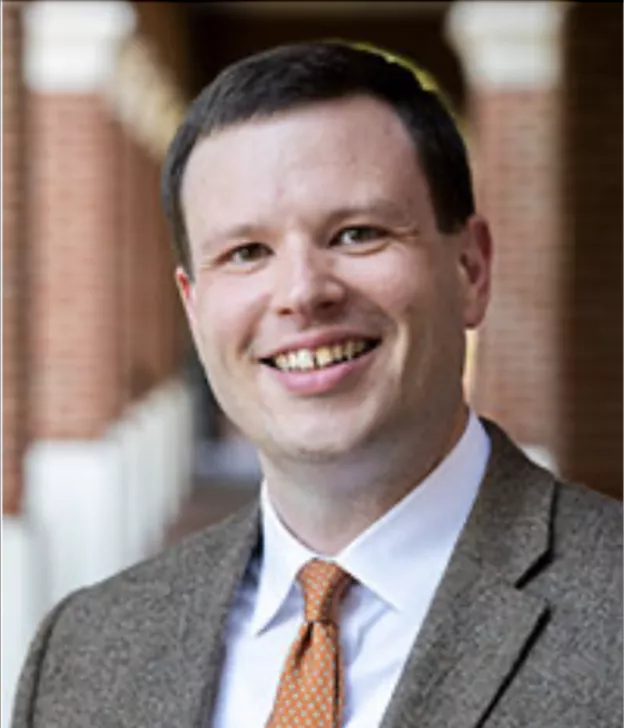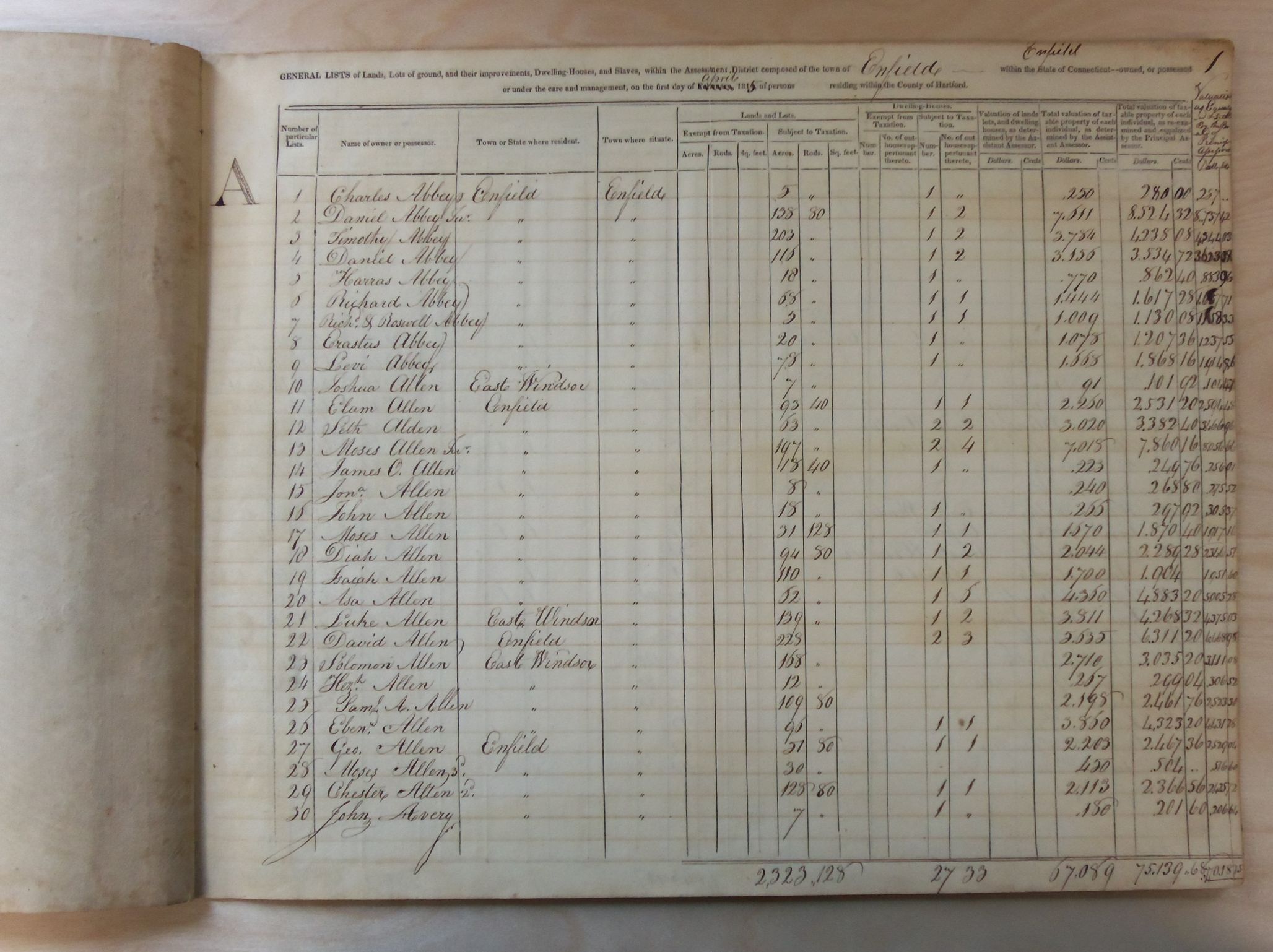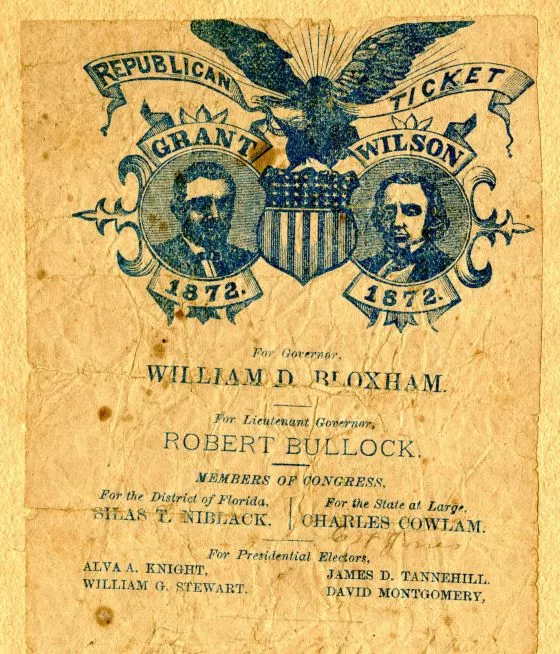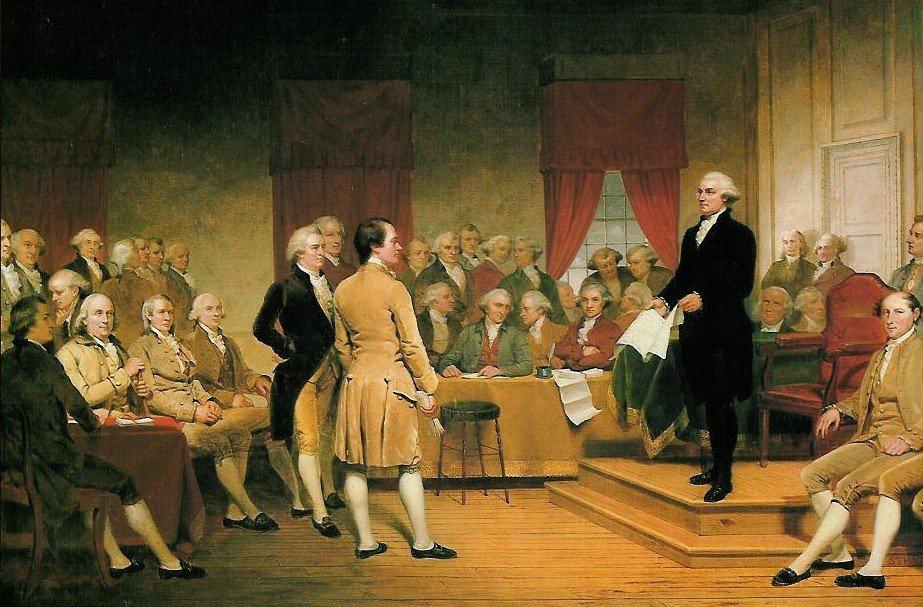
An interview with Professor Frank Garmon
JMC Resident Historian Elliott Drago sat down with JMC Miller Fellow Frank Garmon. Dr. Garmon is assistant professor at Christopher Newport University.
Remember the history has nuance
ED: What inspired you to become a historian?
FG: My parents loved to collect antiques. They enjoyed visiting flea markets and antique malls, and we would travel to Pennsylvania every summer for the Antique Extravaganza weekend.
When I was in second grade my parents bought me a set of presidential figurines from the 1960s made by Louis Marx and Company. They looked like toy soldiers, and I played with (and broke) most of them, but I memorized all of the presidents and began learning as much as I could about American history.
In high school my favorite course was Mr. Charles Demek’s AP U.S. History. Up until that point in my academic career I had shown little interest in school, but I excelled in the course and it led me to want to pursue history in college.
When I arrived at Christopher Newport University, I had plans to major in history and perhaps go to law school afterwards. My plans changed the summer after my freshman year of college when I had the opportunity to take a study abroad course at Harris Manchester College, Oxford University.
As I spent time reading in the Bodleian Library, I couldn’t help but admire the amazing life that professors lead. I spent the next three years of college preparing to apply to Ph.D. programs.

ED: What is your area of specialty, and what sparked your interest in that topic?
FG: I specialize in American political economy and economic history. During my first semester of college I took an economics course and was fascinated by the power of incentives. After taking the class, I began to apply economic reasoning more and more in my history papers.
Economics provides an excellent framework for understanding human behavior and decision making. It also lends itself to quantitative analysis. Historians have a comparative advantage in archival research and analyzing sources. I decided to combine both interests in graduate school.
I wrote a dissertation on state property taxes after the American Revolution. I used the tax records as a source of economic data, and examined the political economy of taxation.
ED: Describe your favorite research “rabbit hole,” and the results of that quest.
FG: I recently finished writing a book about a Gilded Age swindler that began as a “rabbit hole.” Every semester I work with undergraduate research assistants as part of our Junior Fellow program through the Center for American Studies. In the fall of 2020, I was in between projects and did not have anything for my students to work on. I asked my colleague, Jonathan White, if he had any recommendations for digitized collections my students could use. He mentioned that the pardon records sent to Abraham Lincoln are all online, and that most of the records have never been used by historians. He added that an interesting story with a connection to Lincoln might lead to a short article with a student.
One of my students, Nate Hotes, found a letter from the pardon clerk summarizing Charles Cowlam’s pardon application. The clerk emphasized that Cowlam had several points supporting his petition. He had been sentenced to ten years in prison for stealing from the mails when he was only nineteen years old, and he had several sympathetic letters of support.
A pardon from Lincoln
At the same time his file also included a letter from the penitentiary superintendent that explained that this was not Cowlam’s first offense—he had been released from the same prison less than a year before—and he had served the previous sentence under an alias. The pardon clerk described Cowlam’s case as “one of the least meritorious on file in the office.”
Yet Lincoln pardoned him. As I began my search to understand why, I noticed that Lincoln’s pardon arrived after Virginia had seceded from the Union. The governor of Virginia refused to release him, and he remained in prison for another two years until he was pardoned by Jefferson Davis, the president of the Confederacy. What started out as an idea for a short article developed into a book as I continued down the “rabbit hole” in search of Cowlam’s later career.

ED: How do you define and explain “American political economy” to your students?
FG: Political economy is the interplay between politics and economics. The field is interdisciplinary by nature, and can range from economic theorists examining the relationship between policymakers and interest groups, to historians trying to understand the specific context of a particular policy, to political scientists studying the effects of institutions.
Historians often use the term in a very broad sense to refer to scholarship that has a political or economic focus, but is different from traditional political history or economic history.
A historian specializing in political economy might study nineteenth century counterfeiters, the Quartermaster’s Department during the American Revolution, or the history of California’s Proposition 13 in the 1970s.
ED: You teach “American Entrepreneurship,” which sounds like a fascinating course. Tell us a bit about it!
FG: The course is part business history, and part applied entrepreneurship. I use a case study approach and give lectures on classic entrepreneurs from American history, such as Eli Whitney, Andrew Carnegie, and Henry Ford.
At the beginning of the semester I introduce two different competing theories of entrepreneurship, and students compare the two models in a short paper about The Founder, a film about the early history of McDonald’s.
Throughout the semester, students keep an idea notebook that the use to record an idea each day for a product or service, or for a problem that could be solved by entrepreneurship. About halfway through the course the students present their best idea to the class, and for the rest of the semester the students work in teams to develop a business proposal.
This semester we made a class field trip to an Amazon delivery center. It was fascinating to take as inside look at one of the world’s largest companies.

ED: What has your research and teaching revealed to you about America’s founding principles and history?
FG: Every semester I teach our introductory survey on the Constitution. I use an interactive simulation called Reacting to the Past, and assign each student to role play as one of the delegates from the Constitutional Convention of 1787. The class participates in a series of nine debates on the structure of the Constitution.
The main impression that students leave with after completing the class is that the framers were not all of the same mind. Often, they are surprised to find that many of the framers disagreed with one another.
Although the rules of the game are the same every semester, the compromises that students negotiate are always different. The stronger personalities frequently persuade their classmates, and more engaged students typically form coalitions to achieve their objectives in the simulation.
They discover that the Constitution was a product of compromise, and learn how delegates with different backgrounds and philosophies of government worked together toward a common goal.
FG: Teaching the course has made clear to me how fortunate we are to have the Constitution we have. Had the mix of personalities been different, or if different alliances prevailed, the document could have looked very different.
ED: What’s one thing you wish that every student knew about American history?
FG: It is hard to think of only one. I wish that more students understood that history has nuance. Americans tend to idolize or denounce historical figures who uphold or deviate from contemporary values. It is an unreasonable standard to expect the past to conform to our present beliefs.
ED: Great points, thank you for your insights and time!
Elliott Drago serves as the JMC’s Resident Historian and Editorial Manager. He is a historian of American history and the author of Street Diplomacy: The Politics of Slavery and Freedom in Philadelphia, 1820-1850 (Johns-Hopkins University Press, 2022)
